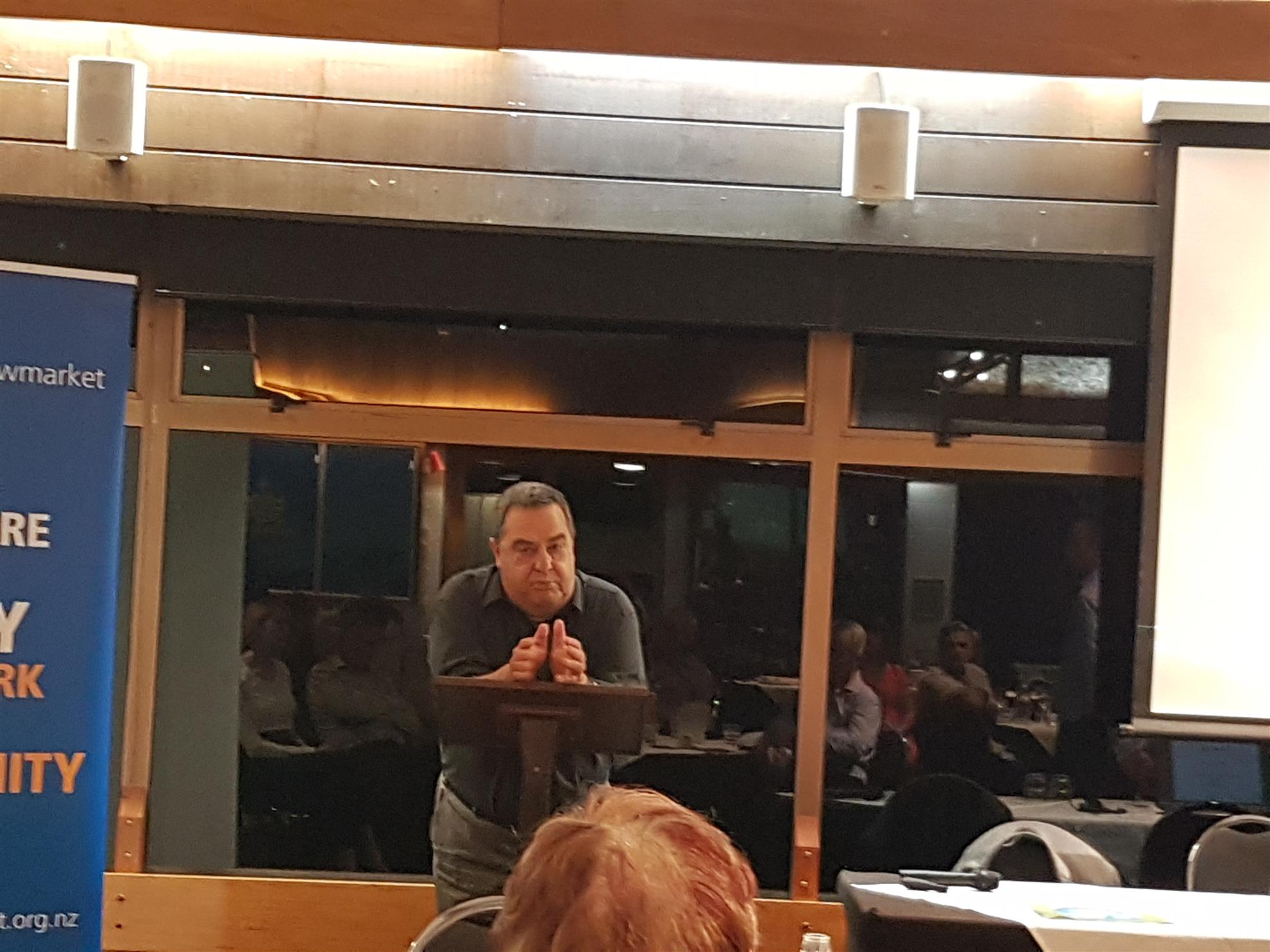Mike Williams and the Howard League for Prison Reform
Our guest speaker at our evening meeting on 11 April 2017 at Remuera Golf Course was Mike Williams, CEO of the Howard League for Penal Reform.
He gave us an insight into the history of the league and what it does in New Zealand.
The Howard league was founded in England in 1866 and in New Zealand in 1923. It’s initial objectives were to abolish capital punishment in jails and to abolish the death penalty.
Following the death of Sir Peter Williams Tony Gibbs became chair in New Zealand. The country. In New Zealand the Howard league’s aim is to reduce incarceration rates, develop community ownership of offending promote offender literacy and promote post-release employment.
Following the death of Sir Peter Williams Tony Gibbs became chair in New Zealand. The country. In New Zealand the Howard league’s aim is to reduce incarceration rates, develop community ownership of offending promote offender literacy and promote post-release employment.

Mike gave us a startling statistic. To work out how many prisons you need in 10 years time all you need to know is how many boys of 10 to 12 years of age cannot read.
Mike told us that on any given day 63% of prisoners incarcerated in New Zealand can’t read. The inability to read means these people are trapped in a vicious cycle of recidivism. Most of these people do not have a driver’s license because to get one you need to be able to read.
Because most of these people do not have drivers licences they cannot get jobs. Because they do not have jobs they go on the benefit and the cycle of dependency, then for some crime is an answer with inevitable incarceration. Depressing really.
The vast majority of offenders, mainly Maori, who make up 51% of the prison population begin their prison career with a sentence for a driving offence generally because they don’t have a driver’s license again because they can’t read.
One of the keys to reducing reoffending is to promote literacy. So the Howard league is looking at literacy in prisons, drug and alcohol rehabilitation, skills training in prison (for example gardening), maintaining family connections, and post-release employment.
If this is all done correctly then offending is reduced.
We have all seen in the papers recently images of prisoners receiving dictionaries following successful completion of reading recovery programs.
The effect of a prisoner being taught to read and consequentially obtain a drivers licences is that they gain employment and they cease to trouble the courts because of their gainful employment.
The Howard league is setting up a program to keep men and woman out of prison in the first place. The program identifies 2nd time offenders who have clocked up 2 offences relating to not having a drivers license and are on probation. If a further conviction is entered the likelihood is that the person will suffer a sentence of a period in jail stop the program teachers those people on probation the rudiments of reading and goes over the intricacies of obtaining a drivers license.
Once they had that license many of these people are taken out of the justice system, many of these people leave the benefit system finding themselves employment and contributing to society.
The sessions cost per individual about $1000. If they keep an individual out of jail then that saves the country the $100,000 per inmate per year it costs Department of corrections.
A lot of the work of the Howard league is funded by sponsors and people shoulder tapped by Mr Williams. Oddly enough there is little buy-in from Iwi and tribal groups. One would reasonably have expected that if Iwi and tribal groups were serious in their efforts to develop the capabilities of their people and support them that a program such as this would have recieved support. That they haven’t is rather disappointing.
Mr Williams speech was warmly accepted by those members present and there followed a lively question-and-answer session which showed quite clearly the topic resonated with members.
